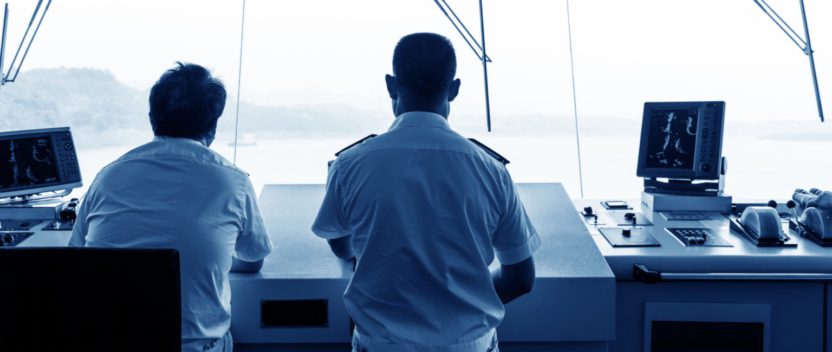A problem shared (is someone else’s problem)
Shipping’s data and technology challenges apparently know no bounds. Just as the engine room is getting to grips with new levels of data capture and analysis, the bridge is coming under the spotlight. At issue is the noon report; the daily update from the master that owners, operators and charterers use to monitor the voyage and make commercial decisions.
Despite the megabytes of data that potentially fly back and forth between ship and shore, millions of dollars of shipping business still relies on a not always particularly accurate form of unstructured data transfer. In extreme cases its users cannot agree on basics like the name of the ship, the port or the cargo, which suggests some radical surgery is needed.
Modernising the noon report is an issue Great Circle has reported on before (http://greatcircle.co/article/high-noon-noon-report) and many software providers are looking at it. But just like precious performance data, the information that can be captured, edited and analysed is sensitive and commercial. It’s where shipping’s 21 century ambitions collide with its 200-year old business model.
This begs the question of whether standards could be developed to improve the format of the data exchange for common benefit while still allowing companies to differentiate commercially.
Mike Powell is head of operations for Union Maritime, the UK’s largest product tanker company and he has a problem. “Every one of our stakeholders believes they have the right to ask the ship anything and get a reply. I think the ship needs to concentrate on sailing so what I want is the reduction of operational complexity,” he told the Smart Solutions event in London.
He has a set of simple rules for data– automatic collection, verification by rule and routeing to all systems without intervention. But this is really more of a wish-list, since he hasn’t yet been able to find a vendor system able to meet his demands.
The contributing problem, as Philip Bacon of AM Nomikos pointed out is that each shipping company believes they are unique, that no-one carries cargo or runs ships quite like them. That this is patently untrue means that each one will ask a software vendor to produce them a system in their own image rather than to a standardised template.
“The business needs to get its act together so that vendors know what they are trying to produce in terms of data and datasets. Why do we all try to do the same thing differently? It baffles me,” he said.
Bacon doesn’t believe there is that much variety on when it comes to the basics of shipping. The trouble is that stakeholders each demand the data in different ways. Whatever the sector there are many repetitive transactions but the practise is not to make the data available to all. “Anyone trying to create a utopia now will not get purchase because the data is proprietary. But because much of the content is the same, there is a huge opportunity to rationalise what we do,” he added.
Despite the seemingly mired debate, the argument is not about shipping in a vacuum. The ‘have it your way’ approach is there precisely because that is what each client wants. “Clients decide how much ‘definability’ can you put into your system,” said Powell. “Much of the data we use is the same. It’s how the clients want to see it that matters.”
Veson Nautical spends its working life trying to solve just these problems and Greg Wilkins was able to crystallise why it was apparently so difficult to work with data and get it to those who need to see it.
Many companies he said had been able to move away from managing data in separate places into single systems that could be used to validate and share information – though re-keying and duplication still exist. Shipping companies need systems that are secure, powerful and redundant but there also needs to be a recognition of how uncomfortable the industry is with sharing that data.
“The next step is more challenging and it’s not technology-driven, it’s industry and people, and that is sharing that data externally. As well as a standard format, there needs to be a belief you can share, that a single noon report is appropriate to be shared with owners, operators and doesn’t need to be changed,” he said.
But Wilkins doesn’t believe standards need to be restricting. It’s understandable that different companies use different terms; building in definability gives people the ability to configure how they manage that. What is critical is an appreciation that while IT can be a competitive advantage, data standards must not interfere with the opportunity to compete.
A question raised more than once was who would take the initiative to bring standards forward and whether this should be the role of a neutral third party. Baltic Exchange CEO and panel chairman Jeremy Penn said his organisation would be happy to provide a co-ordinating role on standards, provided it did not to get caught in the crossfire and could make some quick wins.
The panellists agreed standards shouldn’t be the domain of a particular vendor but that they could be a competitive advantage where providers were able to layer better functionality on top.
Why this has not happened until now appears to be a function of the pain it has caused owners – not quite enough for concrete action, just enough to be a persistent issue. The costs of the inefficiency are shared so there is a feeling that there needs to be a mutual benefit to change.
Veson’s Wilkins suggested that the first part of technology spend is always for internal benefit, on operational efficiency and risk management “the growth comes in providing a competitive advantage that helps clients run their business more effectively”.
A world where it is possible to globally track a package exposes the lack of ability to do similar in shipping. “Sharing is where it comes out,” he added. “Standards are coming to sharing externally and sharing causes the standards to be created.”
The ‘pain’ would still come, he added, through the pressure to share the data more effectively. But at least this is recognition of the need for change. As Penn pointed out, there might not have been enough commercial pressure to resolve the issue in the past but in in today’s shipping markets – more competitive and with much finer margins – the commercial imperative is much easier to grasp.


